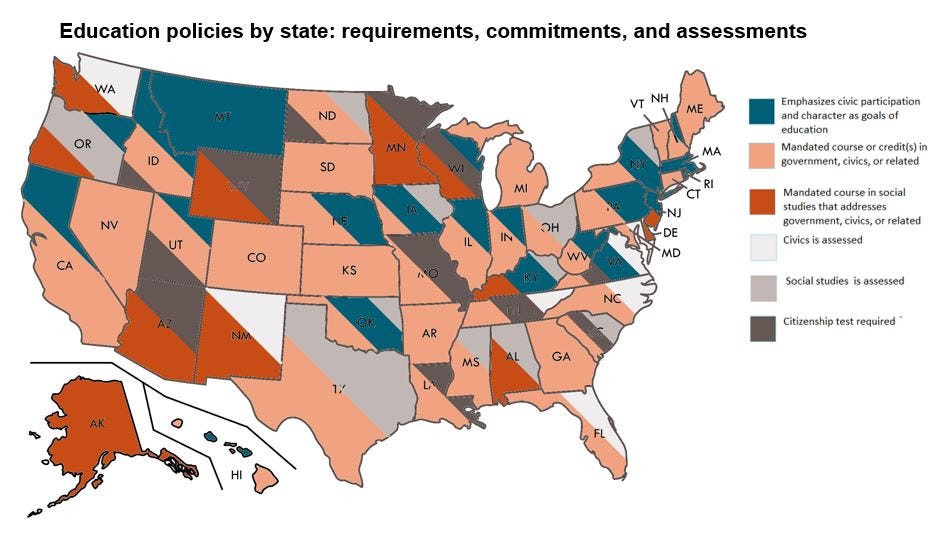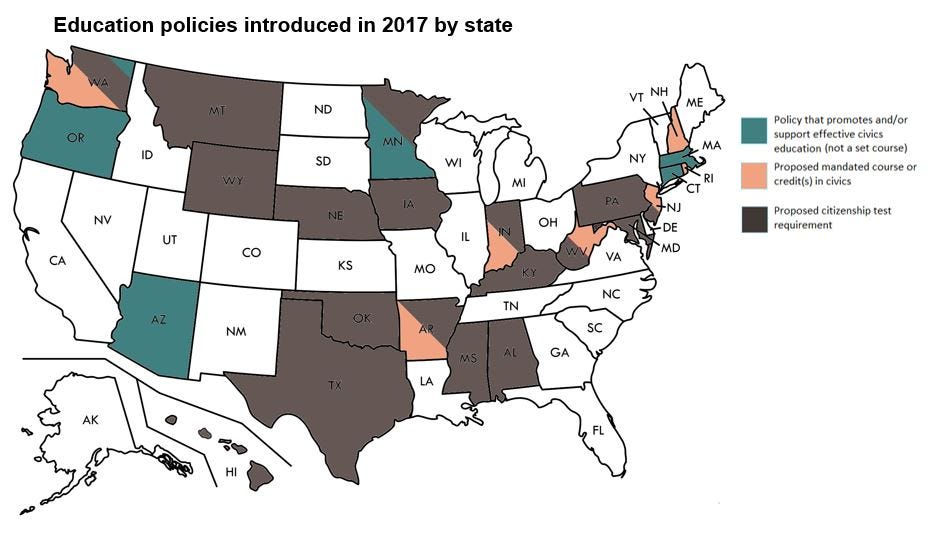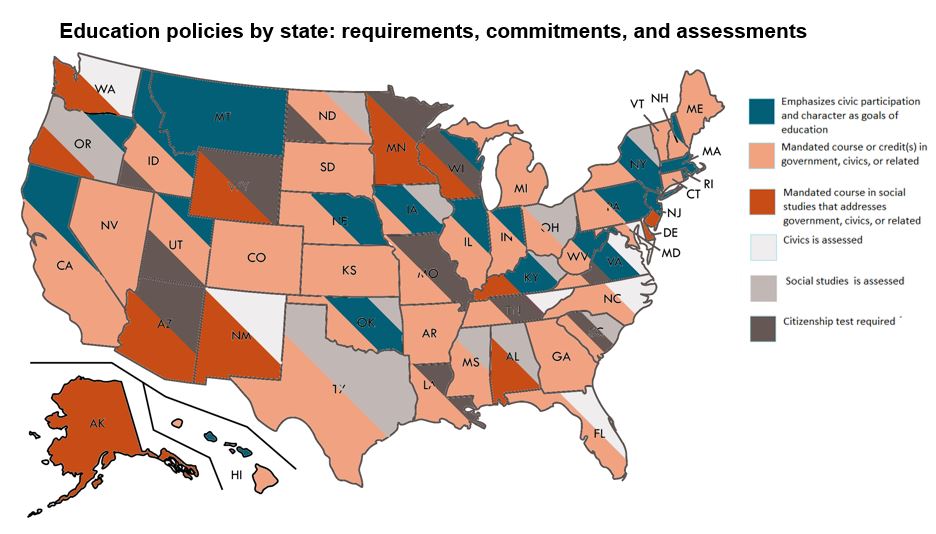Noise around civics education has increased since the 2016 election. There is widespread recognition by educators and policymakers alike that the subject must be reemphasized and revitalized. Concurrently, we at Generation Citizen have been getting our feet wet in policy, considering how we can influence state-level policy that will support, promote, and require effective civics education across the country. To familiarize ourselves with the current landscape, we mapped existing civics education policy and legislation that has been introduced on the topic in the past months. We have found that civics education in the US is on the decline — but it’s not altogether absent.

Looking specifically at state legislation, nearly all states in the US require some sort of civics education. For most states, the requirement is in the forma specific history or civics course (at a minimum of .5 credits, or one semester), while for others it’s a parameter of broader social studies requirements. While this might seem promising for the state of our students’ education, much of what is required remains light. According to the legislation, only about a quarter of states emphasize the importance of educating for civic participation. Additionally, less than half require assessments to hold districts, schools, and teachers accountable for teaching civics. Notably, half of these civics assessments are in the form of the U.S. citizenship test, which does not test the nuanced understanding of government systems and the skills required to be active citizens that effective civics courses should be teaching
Many of these requirements have been in place for decades and have not been updated to reflect the 21st century world in which students live. We are pleased to see that in this 2017 legislative process, a number of promising bills have been introduced in a variety of states to support and promote effective civics education. Among them is a Massachusetts bill that our team worked closely with a coalition and State Senator Chandler’s office to introduce. Should it become law, the law would require project-based civic learning for all students and offer funding to support the work. Similar to the pioneering law that was passed in Illinois that promotes best pedagogical practices for civics learning with private funding, the Massachusetts bill is a positive step towards reaching the state-level civics ideal, reemphasizing not solely civics, but civics with sufficient quality and quantity.

While there’s a been momentum around civics education legislation in this period after the election, we need quality not just quantity. We need legislation that outlines best practices for civics education and has systems in place for implementation. Without funding and accountability, a promising bill is an empty mandate. The impetus is upon champions of civics education, including state legislators, boards of education, district leaders, scholars, and nonprofit and community partners like Generation Citizen, to identify an ideal and work towards implementing effective civics education in all states across the country. Surely this is a lofty goal, but a necessary one as emphasized by our current climate of political vitriol, apathy, and misunderstandings. We believe that the action-based, funded legislation introduced in Massachusetts is a great start, and hope to see more states following suit.
